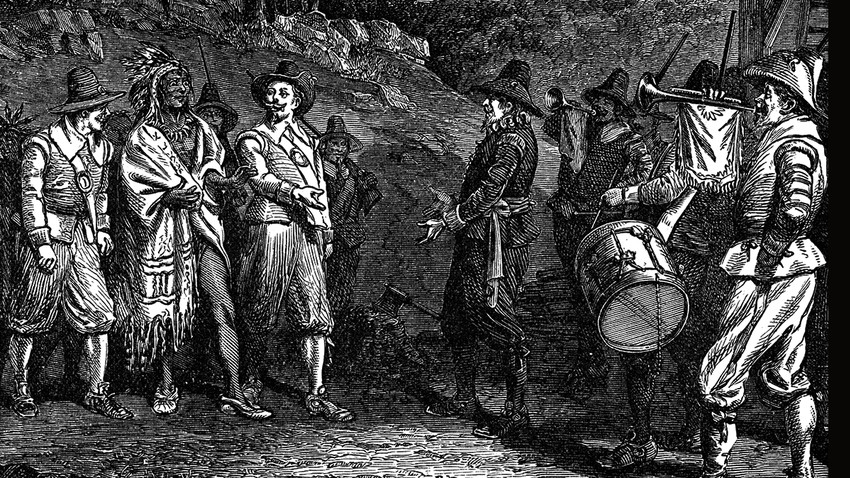
The #1 Thanksgiving
Nobody knows the day in 1621 for that first Thanksgiving on these shores. “. . . it was probably in late September or early October, soon after [the Pilgrim’s] crop of corn, squash, beans, barley, and peas had been harvested” (Nathaniel Philbrick Mayflower 117). The decimated band of immigrant refugees to the New World had by a breath barely survived that treacherous winter before.
The numbers speak volumes: “ . . . 45 of the original 102 colonists died during the first winter. There were 17 fatalities in February alone. Many succumbed to the elements, malnutrition, and diseases such as scurvy. Frequently two or three died on the same day. Four entire families perished and there was only one family that didn’t lose at least one member. Of the 18 married women, 13 died. Only three of 13 children perished, probably because mothers were giving their share of food to the children” (www.weatherconcierge.com/the-pilgrims-barely-survived-a-harsh-first-winter-at-plymouth/).
And yet crippled though they were by those losses, this band of fifty-two English survivors turned a subsequent bountiful summer crop into a three-day harvest feast for the fledgling band of Pilgrims and their benefactor guests, Chief Massasoit, and his ninety Indian men.
While not referring to it as “thanksgiving,” William Bradford, their elected governor, declared it a time to “[gather] the fruit of our labors” and “rejoice together . . . after a more special manner” (Philbrick 117). Artists’ portrayals notwithstanding, it was not the traditional dinner associated with Thanksgivings since. No forks available, all ate with fingers and knives a repast of vegetables, duck, deer, fish—but (let it be noted) with nary a crumb of pumpkin pie or a spoonful of cranberry sauce (much later delectable additions to the traditional Thanksgiving fare).
Years after that first “thanksgiving,” the aged Bradford looked back to testify: “What could now sustain them [those survivors] but the spirit of God and His grace? May not and ought not the children of these fathers rightly say: ‘Our fathers were Englishmen which came over this great ocean, and were ready to perish in the wilderness; but they cried unto the Lord, and He heard their voice and looked on their adversity [see Deuteronomy 26:7]’” (Philbrick 46).
And “may not and ought not” the children of America today—all of us who come from every land to inhabit this same land—join that ancient chorus: “Shout for joy to the LORD, all the earth. . . . Enter His gates with thanksgiving and His courts with praise; give thanks to Him and praise His name. For the LORD is good and His love endures forever; His faithfulness continues through all generations” (Psalm 100).
And may this be a fresh new day of thanksgiving for us all—at the nail-scarred feet of Him whose faithful love has never failed us. A blessed Thanksgiving to all.